Mastering the Roadmap for Success
The MERN (MongoDB, Express.js, React.js, Node.js) stack represents a formidable synergy of cutting-edge technologies, ushering in a new era of web development. This stack has gained immense popularity, becoming a go-to choice for developers building robust and dynamic web applications. In this comprehensive exploration, we will delve into each component of the MERN stack, unravel the intricacies of its development roadmap, and provide an exhaustive guide for aspiring MERN stack developers.
I. Introduction to the MERN Stack
The MERN stack, an acronym derived from its core technologies—MongoDB, Express.js, React.js, and Node.js—is a full-stack JavaScript framework widely embraced for its versatility and efficiency. Each component plays a distinctive role in the development process, creating a seamless and integrated environment for building modern web applications.
MongoDB: The NoSQL Database
- MongoDB serves as the ‘M’ in MERN, representing a powerful NoSQL database. Its schema-less design and flexible data model make it a favored choice for handling diverse and rapidly evolving data. We explore MongoDB’s role in storing user data and its prevalence in the web development landscape.
Express.js: The Server-Side Framework
- Express.js, the ‘E’ in MERN, is a minimal and flexible Node.js web application framework. It simplifies server creation and API routing, enhancing the development process. We delve into Express.js’s role in creating servers, establishing API routes, and its preference over native Node.js modules.
React.js: The Front-End Library
- React.js, represented by the ‘R,’ is a JavaScript library developed by Facebook. It serves as the backbone of the front-end, managing user interfaces efficiently. We explore the significance of React.js in building interactive and dynamic UIs, citing examples of prominent websites utilizing its capabilities.
Node.js: The JavaScript Runtime
- Completing the stack, Node.js (‘N’) is a JavaScript runtime environment. It enables the execution of server-side code, making it possible to build scalable and high-performance web applications. We examine Node.js’s role in handling API requests, its integration with MongoDB, and its cross-platform capabilities.
II. The MERN Developer Roadmap
In the ever-evolving landscape of web development, aspiring MERN stack developers need a roadmap to guide their learning journey. This section outlines a step-by-step path for mastering the essential skills required for MERN stack development.
Building a Strong Foundation: HTML, CSS, and JavaScript
- Before delving into the MERN stack components, developers must establish a robust foundation in HTML, CSS, and JavaScript. We emphasize the importance of these core technologies and provide resources for in-depth learning.
- HTML: Mastering the fundamental structure of websites.
- CSS: Exploring design aspects, including advanced features like Flex and Grid.
- JavaScript: Understanding core concepts, asynchronous programming, and API usage.
Choosing Between React.js and Node.js
- With a solid foundation, developers face a crucial decision—whether to start with React.js or Node.js. We advocate for beginning with React.js for frontend development and outline the rationale behind this choice.
Learning React.js: The Front-End Masterclass
- React.js serves as the gateway to front-end development in the MERN stack. We provide a detailed roadmap for learning React.js, covering essential topics such as JSX syntax, components, props, states, React hooks, forms, routing, and state management tools.
Learning Node.js: The Back-End Odyssey
- Once proficient in front-end development, developers transition to Node.js for back-end mastery. We present a comprehensive guide to learning Node.js, covering fundamental concepts, package management with npm, asynchronous code, events, error handling, API creation, middleware, and more.
III. Deep Dive into MERN Stack Components
In this section, we take a closer look at each MERN stack component, exploring its functionalities, use cases, and interactions within the stack.
MongoDB: Unraveling the NoSQL Database
- Delving deeper into MongoDB, we examine its role as a NoSQL database, its schema-less architecture, and practical examples of data storage, such as user account information.
Express.js: Crafting Servers and API Routes
- Express.js, as the server-side framework, warrants a detailed exploration. We unravel its features, installation process, and advantages over native Node.js modules. Examples illustrate the creation of servers and API routes.
React.js: Architecting the Front-End Experience
- The front-end experience is the crux of user interaction, and React.js takes center stage. We dissect React.js’s architecture, JSX syntax, components, states, and hooks. Case studies showcase its implementation in top-tier websites.
Node.js: Powering API Creation and Handling Requests
- As the runtime environment for server-side JavaScript, Node.js is integral to handling API requests. We delve into its capabilities, asynchronous code execution, and interactions with MongoDB to retrieve and provide data.
IV. Advanced Topics and Tools in MERN Stack Development
With a solid understanding of the core components, MERN stack developers can explore advanced topics and tools to elevate their skills and enhance the development process.
- React.js: Advanced Topics
- React Hooks: Understanding useState, useEffect, useRef.
- Higher Order Components, Error Boundaries, Portals, Custom Hooks.
- Form Management: Using packages like useForm and Formik.
- Routing: Navigating between pages with React Router.
- Making API Calls: Utilizing fetch, Axios, Superagent.
- State Management: Tools like Redux Toolkit, Mobx.
- Styling Components: Leveraging React Bootstrap, Material UI, Chakra UI.
- Node.js: Mastering the Back-End Landscape
- Package Management: Global and local installation of packages with npm.
- Error Handling: Strategies for effective error handling.
- Asynchronous Code and Events: Understanding event loops and callbacks.
- File Modules: Utilizing __dirname and __filename.
- API Working: Creating API routes with built-in HTTP module and Express.js.
- Middleware: Implementing middleware with and without Express.js.
- Request and Response: Understanding objects and their properties.
- Authentication: Using JSON Web Tokens, Passport.js for user authentication.
- Template Engines: Incorporating Pug and hbs for dynamic HTML pages.
- Database Integration: Connecting to MongoDB using the Mongoose package.
- Testing: Implementing Jest and Mocha for testing.
- Process Management: Using Pm2, Forever package for app persistence.
- Logging: Employing ‘Morgan’ package for request object logging.
- Core Concepts: Understanding threads, thread pool, and their implications.
V. The Final Verdict: A Launchpad for MERN Stack Careers
As a beginner, following the outlined learning path equips aspiring MERN stack developers with the necessary skills and knowledge. The extensive roadmap covers foundational technologies, in-depth exploration of MERN stack components, and advanced topics, providing a holistic understanding of web development.
Conclusion
The MERN stack stands as a testament to the evolution of web development, offering a unified platform for developers to create dynamic and responsive applications. As technology continues to advance, mastering the MERN stack provides a solid foundation for a successful career in the ever-expanding field of web development. Whether building scalable back-end systems with Node.js or crafting immersive front-end experiences with React.js, the MERN stack opens doors to limitless possibilities in the digital landscape.
Read more: Master Social Media Optimization: A Step-by-Step Guide


